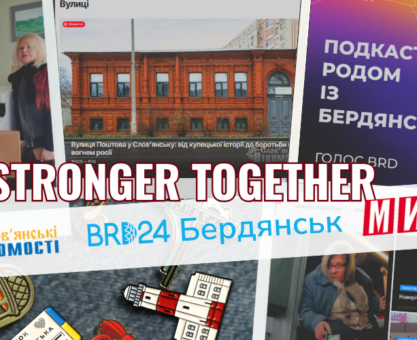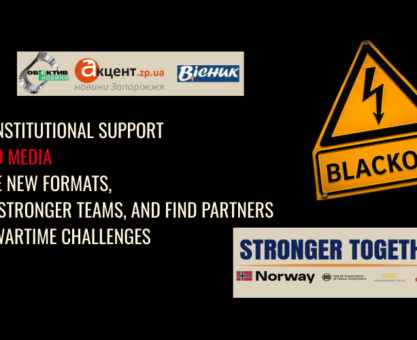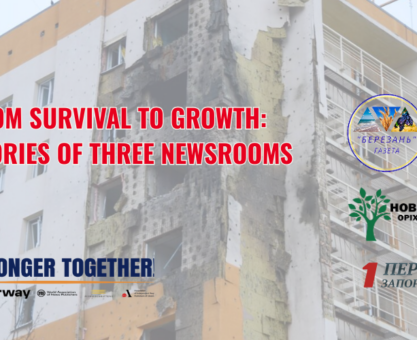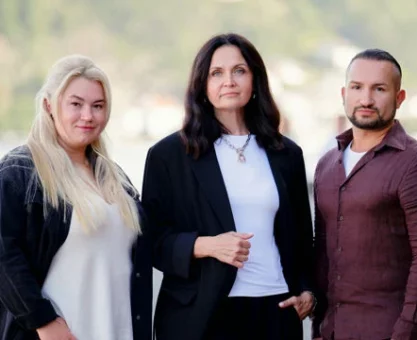Today, independent regional journalism in Ukraine is no longer just about news. It is about a daily fight for truth, resilience in times of crisis, and the ability to provide audiences with accurate, verified information — even in places where simply surviving is a challenge.
Receiving the Golden Pen of Freedom Award 2025 at the World News Media Congress in Kraków became a symbol of international recognition for the work of Ukrainian journalists. More importantly, it served as a powerful reminder: in the face of extreme realities, journalists in Ukraine are not just continuing their work — they are transforming what journalism means in times of war.
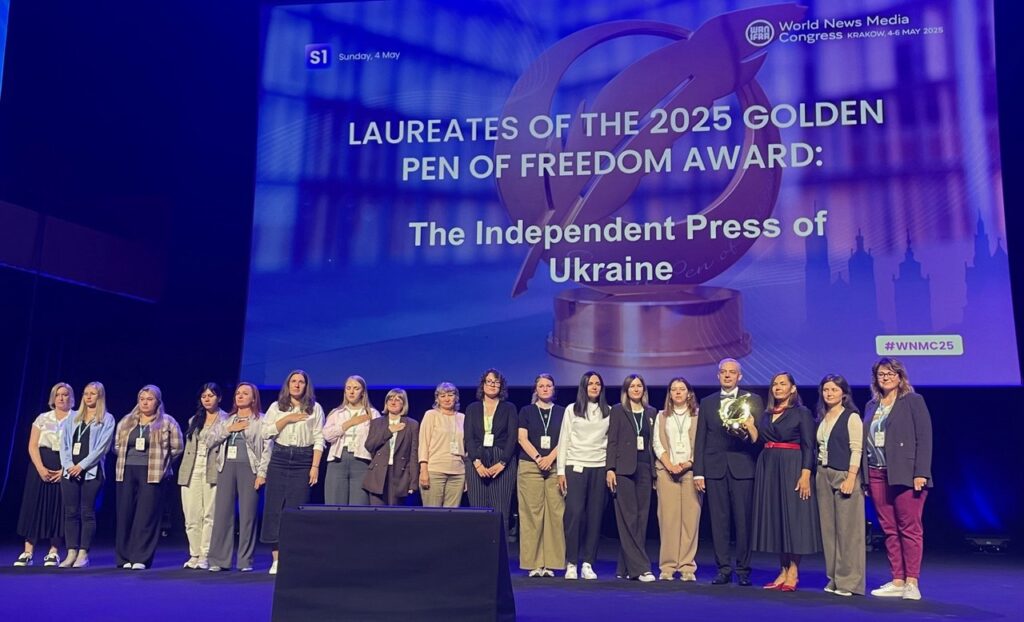
A conversation with Oksana Brovko, CEO of the Association «Independent Regional Publishers of Ukraine» (AIRPPU), who officially accepted the award at the opening of the World News Media Congress — about how the role of independent media is changing, what helps newsrooms stay strong, and what this recognition means for the Association.
This year’s recognition stands as a symbol of the resilience and unwavering spirit of Ukrainian journalism in the face of full-scale war. In its decision, WAN-IFRA emphasized that Ukrainian media professionals have «demonstrated an unshakable commitment to press freedom during exceptionally dramatic times», — said Oksana Brovko, as the leader of one of Ukraine’s key media associations, for her outstanding efforts in supporting colleagues throughout the war.
Read more about how it happened: Resilience Under Fire: Ukrainian Independent Press honored with the Golden Pen of Freedom 2025 Award
Oksana Brovko’s speech at the Congress, which was met with a standing ovation, can be viewed HERE: Golden Pen of Freedom Award Ceremony: Speech by Oksana Brovko
Today, the work of Ukrainian regional media is a daily response to new challenges and a continuous fight for the right to tell the truth. Receiving the Golden Pen of Freedom Award 2025 is a significant recognition of the efforts of the entire Ukrainian media community.
More on what this award means, how the role of independent journalism has changed during the full-scale war, the daily challenges newsrooms face, and what keeps them going — in a short interview with Oksana Brovko, СEO of the AIRPPU.
Which newsroom came to mind when you received the award? Who do you feel most compelled to speak about now?
— A wave of emotions hit me at once. On one hand, there was sadness — for the colleagues who have been killed and will never get to see our victory. On the other — I thought about the tireless efforts of small newsrooms still producing print publications.
In frontline areas, their role is more vital than ever. This kind of journalism is not just about informing — it’s about protecting lives. It reflects the core values of our profession.
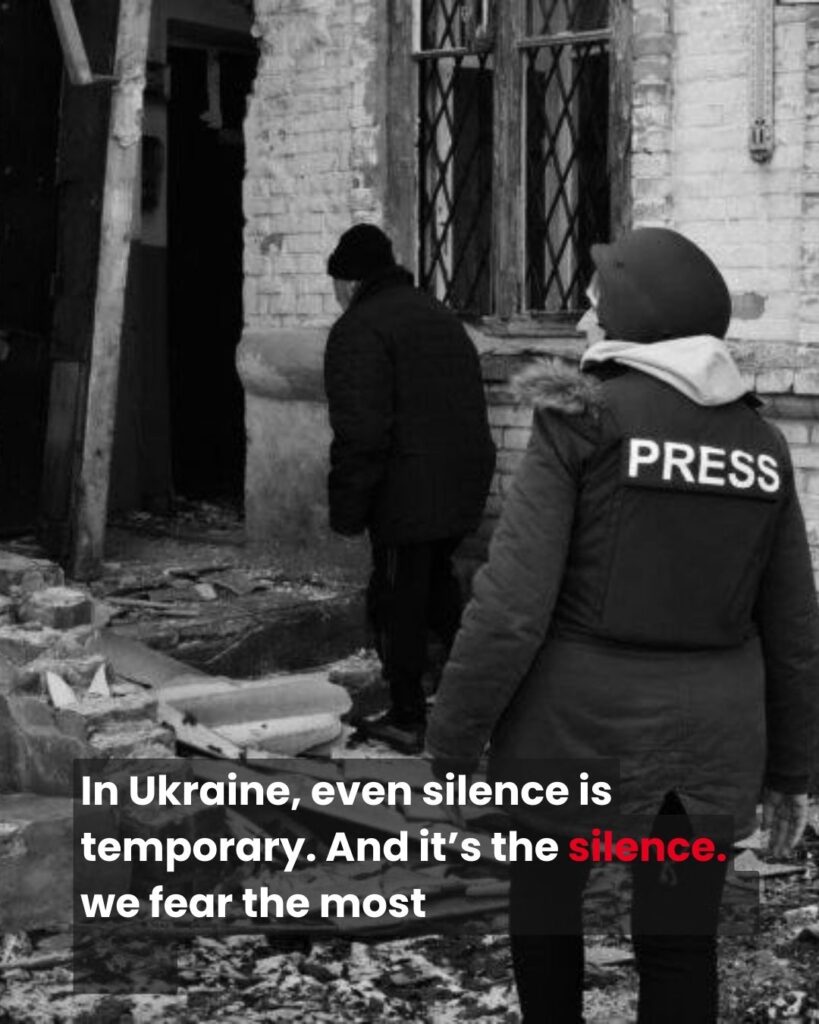
I can’t single out just one newsroom, but in that moment, an image formed in my mind — a collective portrait of resilience, made up of all these courageous editorial teams who continue to do their work against all odds.
What are you most proud of in the Association’s work over these years of full-scale war? Which projects have been the most successful?
— I’m proud of the fact that no single newsroom that wanted to keep working was left without support. We’ve managed to assist every motivated media, regardless of the conditions they were operating under.
What inspires me the most is that Ukrainian regional media didn’t break — they didn’t just survive, they’ve continued to grow.
Thanks to that, Ukraine has not become a news desert, as could have easily happened given the extreme circumstances we’re all facing.
And what would you say have been the biggest challenges?
— Without a doubt, the beginning of the full-scale invasion was the most difficult moment. The biggest challenge was to quickly overcome the initial shock and trauma. Even though we had been preparing — we had an action plan and a clear understanding of what to do — pulling ourselves together was far from easy.
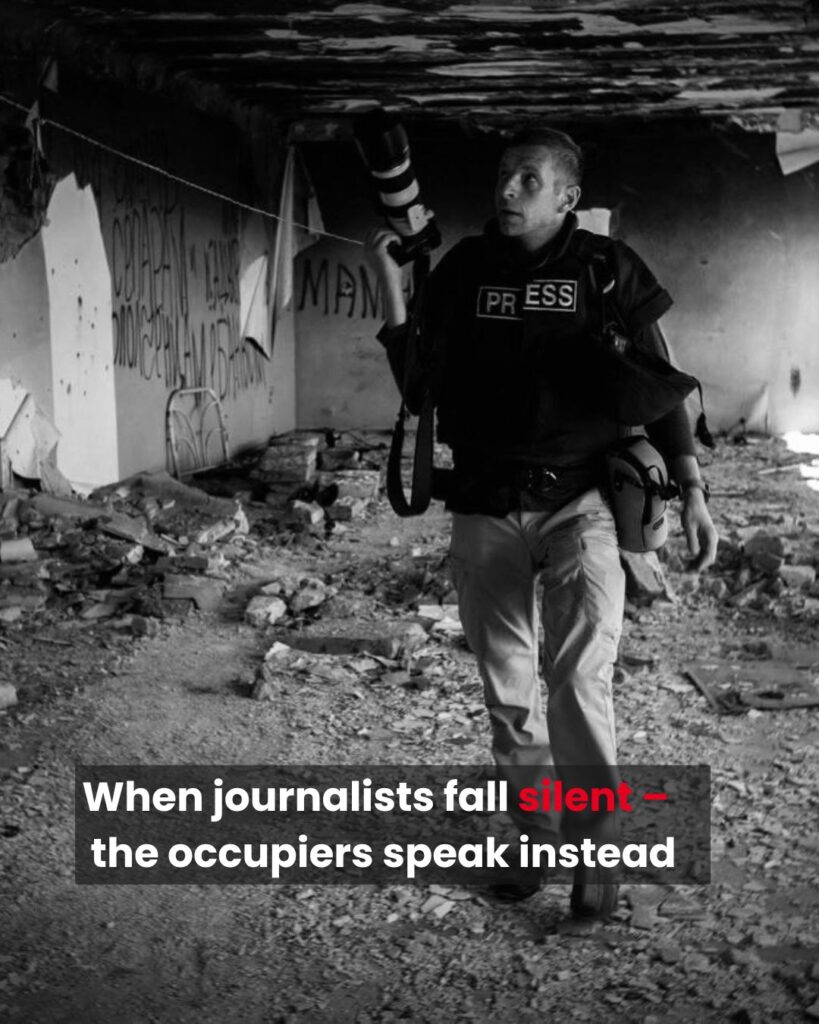
None of us was born for war. No one could remain emotionally unaffected by the losses, the pain, the despair, or the forced relocations. The real challenge was to get back on our feet quickly, regroup, and begin doing what we do best — for our country, for the protection of truth, for justice and hope.
What, in your opinion, symbolizes media resilience?
— Resilience is when, even under extreme pressure to optimize operations — when one editor has to be a journalist, a cameraman, and a driver all at once — the work still goes on. The newspaper still gets printed, even under shelling, despite staff shortages and psychological exhaustion.
Resilience is when, during heavy attacks, you don’t run for shelter — you run to inform, to document. Unbreakability means doing your work not because the conditions are right — but in spite of everything standing in your way.
How strong has the support from partners been over these years? What trends are you seeing now?
— It’s thanks to the support of our international partners that many newsrooms were able to get back on their feet.
Without this help, it would have been extremely difficult to survive — professionally, morally, and financially. These partnerships and collaborations have given us the strength to move forward, no matter how the situation in the country evolves. And it’s not just about financial aid — it’s also about genuine solidarity.
War is a devastating crisis, but at the same time, it brings opportunities — the chance to find new allies, to build meaningful partnerships.
Today, we have a broad network of support that helps us make Ukrainian journalism more resilient, stronger, and more professional.
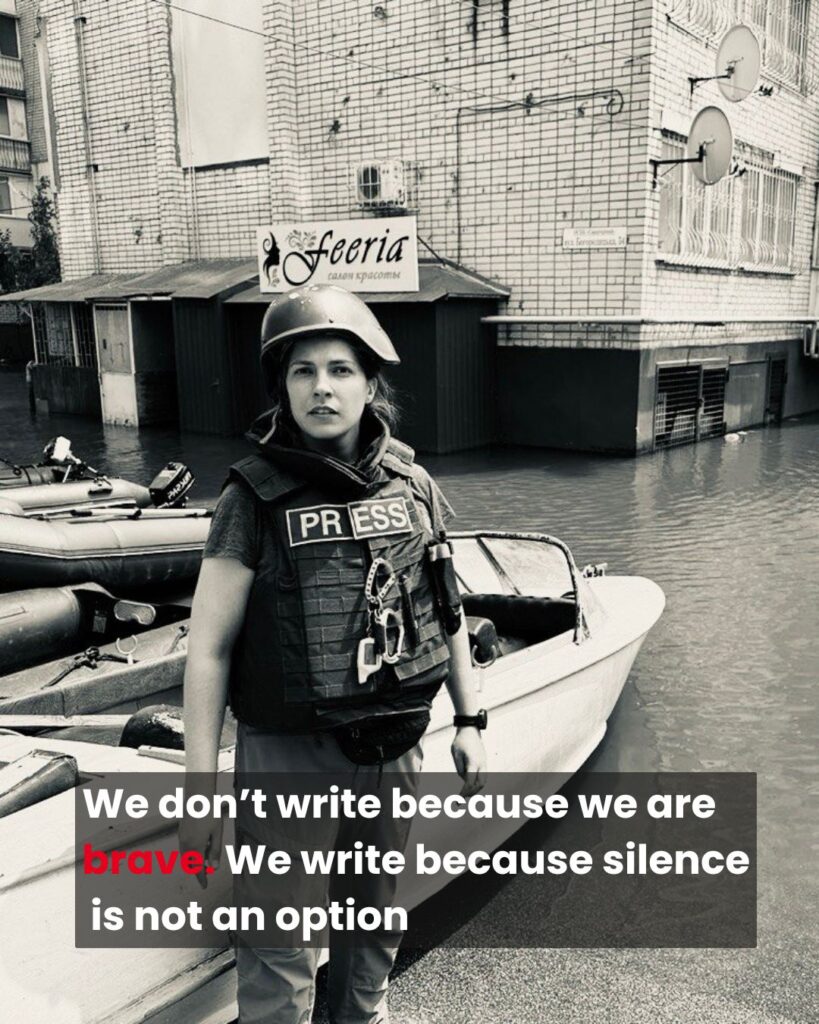
Would you say the war has become a point of growth for regional newsrooms in Ukraine? After all, many new opportunities for learning and exchange have emerged.
— Absolutely. Alongside the hardships of war came opportunities for professional transformation and growth for many media outlets.
Some have undergone full digital transformations of their websites, others are actively exploring AI tools, and many are launching new business models to sustain their work.
Thanks to the fact that Ukraine remains in the global spotlight, these opportunities help regional media not only survive — but also evolve and move forward.
The Association supports over 150 regional media outlets across the country. Do you feel professional solidarity from your colleagues in the regions? Is our unity as strong and unbreakable as ever?
— This openness and solidarity are clearly visible on the Ukrainian media landscape. Our Association’s members and partners are always willing to share experiences, ideas, and resources. According to our estimates, AIRPPU has managed to engage over a thousand media professionals from various newsrooms in different initiatives.
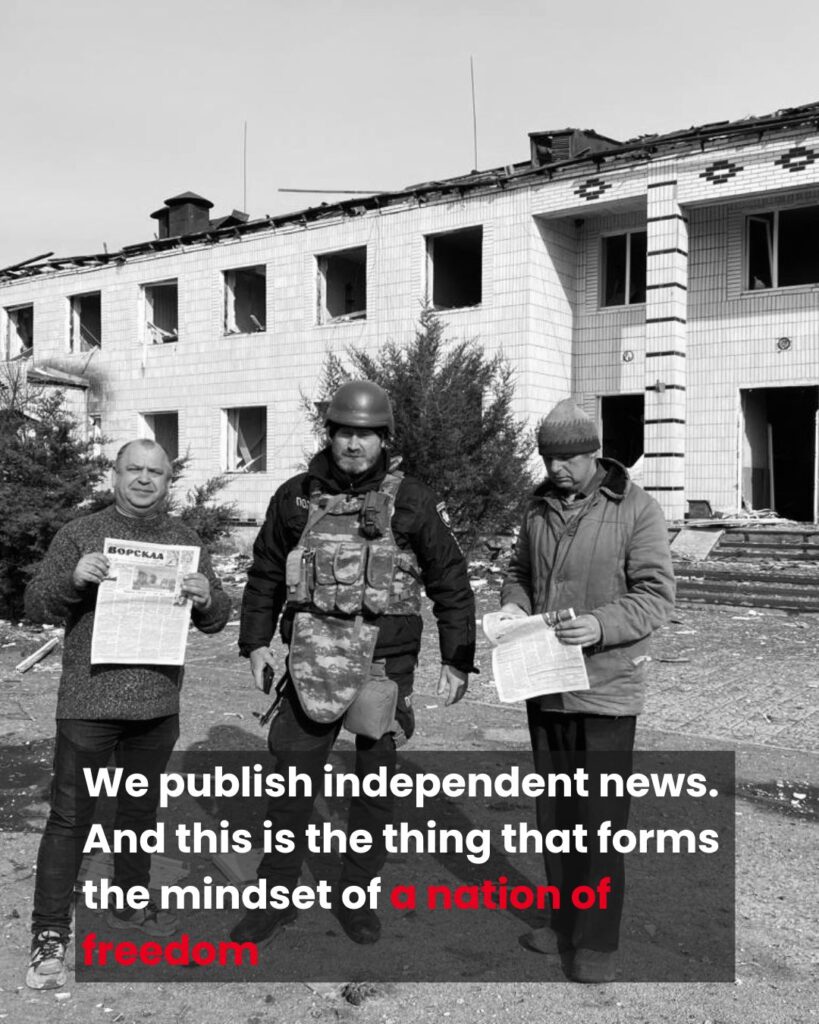
Just imagine — what a strong and supportive journalistic community that is.
It’s a community built not just on professional goals, but on mutual respect, trust, and a shared mission to defend truth in the face of adversity.
What are your plans for the current year? After all, the Golden Pen of Freedom Award is not only about the past — it’s also about the future. Where do we go from here to preserve our resilience?
— Our main goal remains clear: to continue supporting Ukraine’s independent regional media — to give them the strength to persevere and to keep delivering accurate, verified information to the public.
Looking ahead to the next three years, we are placing special emphasis on:
- Long-term institutional support for newsrooms
- The development of investigative journalism in regional media
- And supporting women’s leadership in journalism
These are our top priorities — and we see immense value in each of them as part of building a more resilient, empowered, and forward-looking media community in Ukraine.
Finally, what message would you like to share with the global community after receiving this award on behalf of Ukrainian media?
— When you live and work in relatively safe conditions, you rarely stop to reflect on the core values you’ve always had. The war in Ukraine has shown each of us that freedom is not inherited, it’s not something you’re simply born with, and it doesn’t fall from the sky.
Freedom must be earned and defended every single day — with every word, every choice, and sometimes, at the cost of one’s life.
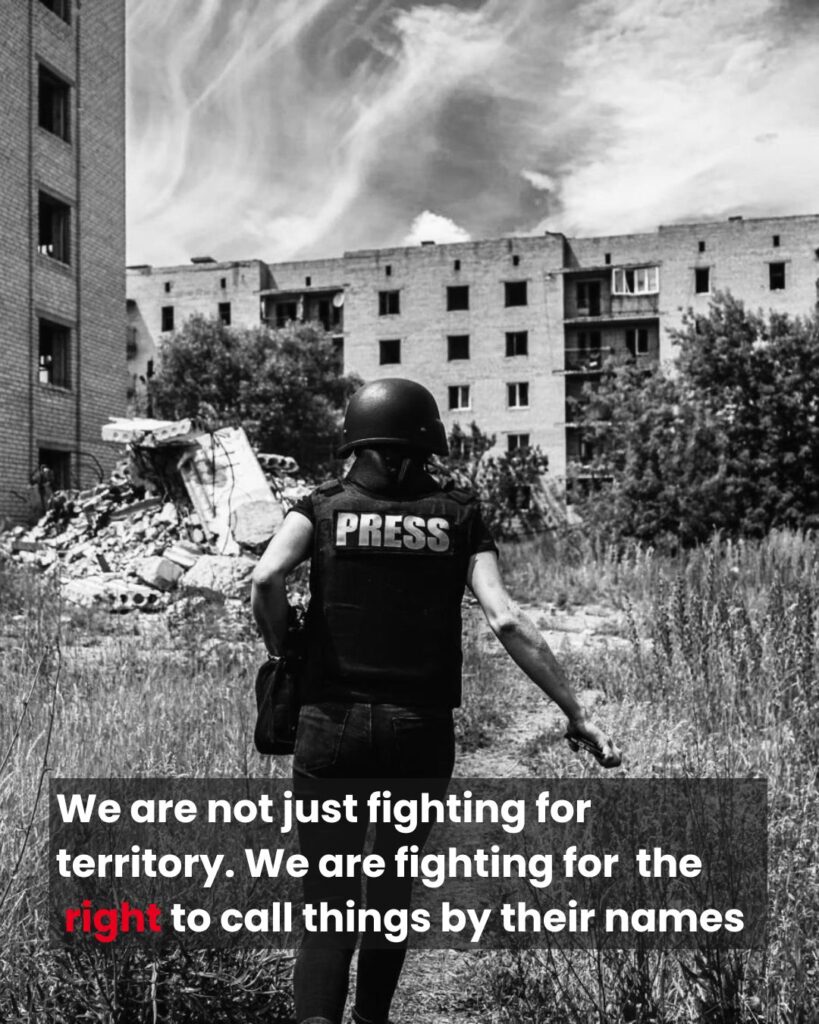
I want this to resonate once again with all our international colleagues — as a vivid reminder of why we, Ukrainian journalists, continue our work. And now more than ever, we need support and solidarity from professional, independent voices around the world.
To our Ukrainian colleagues, I wish us strength and unity. The hardest moments are when you feel alone — but when you sense a steady, friendly shoulder beside you, you can move forward with confidence.
Our team stands with both large regional and small local media — with print newspapers and online platforms alike. We hear every newsroom. Your voice is a voice of freedom for all Ukrainians.
Remember this: you are not alone. We are here — together.

